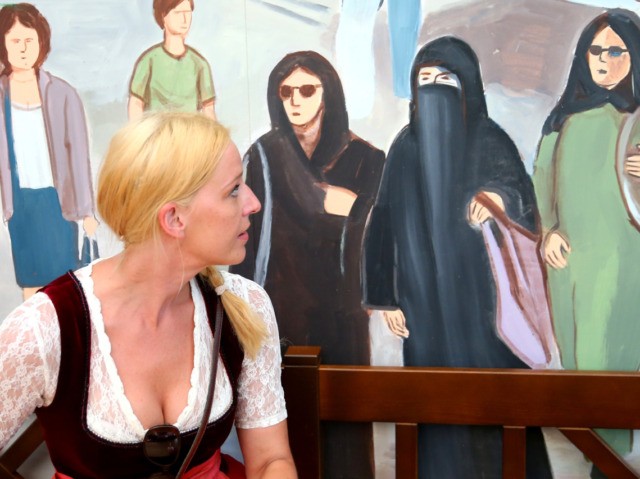Austria’s coalition government on Thursday announced it is considering several measures to curb the influence of what Conservative People’s Party (OVP) leader — and once and future chancellor — Sebastian Kurz described as “political Islam.”
The measures include a ban on Islamic headscarves for girls until they reach the age of 14 and a provision for putting potentially dangerous individuals in “protective custody” to prevent them from committing violent actions.
Kurz said during his first term as chancellor that “radicalization and political Islam have no place in our country.” He invoked the 2015 “Islam Act” to close mosques that were accused of supporting extremism and engaging in subversive political activity. Among other features of the Islam Act was a ban on foreign funding of religious activities in Austria.
Headscarves were banned in May 2019 for girls younger than 10, a rule denounced as “shameless” and a “direct assault on religious freedom” by Austrian Muslims, and an act of “rightwing extremism” by Kurz’s political opponents. Kurz plans to raise the age to 14 during his return to office.
The proposal for “preventive custody” for “people for whom facts support the assumption that they pose a threat to public safety” was evidently inspired by an Afghan asylum seeker who went on a knife rampage in February, critically injuring four people. Another Afghan migrant was charged with killing two people in knife attacks in October.
Kurz, currently 33 years old, was the chancellor of Austria and the world’s youngest national leader until losing a vote of no confidence in May over a corruption scandal involving Vice Chancellor Heinz-Christian Strache.
While Kurz was not tarnished to any perceptible degree by the scandal, Strache’s right-wing Freedom Party (FPO) was booted out of the governing coalition. The OVP subsequently scored its best results ever in the snap September election, so Kurz is once again the world’s youngest leader – but this time his coalition partner is the Green Party, marking what nearly all observers saw as a pronounced shift to the left for Austrian politics.
The Greens also made big gains in September but still lag far behind OVP, with about 14 percent to OVP’s 37 percent of the vote. The Greens are actually only the fourth-biggest Austrian party, lagging behind the collapsing but still formidable Social Democrats and Strache’s uneasy former allies the FPO.
While the FPO has more votes than the Greens, it managed to alienate just about everyone else at the top of Austrian politics with the Strache affair and other scandals, so the Green Party — over the objection of many of its members — was courted and won by Kurz as a coalition partner.
“Frankly, these negotiations on the government were not easy, because both parties are based on very different foundations. But, in my opinion, we achieved an excellent result,” Kurz said on Wednesday, proclaiming his alliance with the Greens to be “the best of both worlds” the next day.
That best-of-both-worlds deal includes Green environmentalist priorities and promises of a more transparent government with Kurz’s tough stance on migrants coming across the Mediterranean. Under the agreement reached by Kurz and Green Party chief and likely vice-chancellor Werner Kogler, the Greens will actually run the ministries of environment, justice, and health.

COMMENTS
Please let us know if you're having issues with commenting.